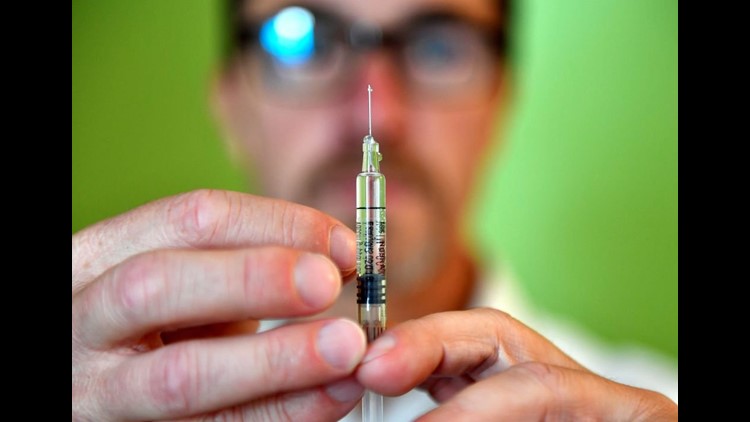HARTFORD -- A universal flu vaccine has been something of a Holy Grail for flu researchers, and to date, no one has come close to developing one.
Other vaccines last virtually a lifetime and have helped to eradicated certain diseases, but the flu vaccine is often ineffective, and only lasts about a year even when it is effective.
However, a team of researchers at the Cohen Lab at U.C. San Diego have taken a few promising first steps toward developing one.
“We’ve had success along the way, but it really picked up in the last 18 months or so,” said Cy Credille, one of 20 researchers working on a new drug to fight influenza, “We’re developing drugs that can actually stop the flu virus in its track."
Current flu vaccines fall short in two ways – their effectiveness varies from year-to-year, and is often below 50 percent, and new vaccines have to be developed each year.
Both deficiencies trace back to the same root cause, the incredible mutative ability of flu viruses.
Flu viruses are constantly changing, which helps it to avoid being detected by the body’s immune system. It’s as if the virus is an intruder who keeps changing clothes.
To make matters worse, the body primarily is only able to recognize the viruses by their “clothes.”
Over time, the viruses have developed so many types of clothing, and change them so frequently, that the best researchers can do for the yearly vaccine is to guess what the three or four most prevalent types of virus will be each season, and provide protection for the “clothes” they’re wearing at the moment.
The treatment that Credille and his team are developing, though, works differently.
To follow this (admittedly) rough analogy, his treatment doesn’t focus on the “clothes,” which constantly change, but more on some of the less changeable parts of the viruses.
"What we’re trying to do is develop something that, regardless of which strain that happens to be circulating this year, it deals with the machinery that’s always the same no matter what flavor of flu happens to be prevalent," he said.
The early returns have been promising.
“From the lab scale, we’re doing great. We have some data that suggests it really, really should be effective if it eventually gets to humans,” Credille said.
To his and his colleagues’ amazement, Credille said the drug works against the virus in two ways. While it was designed to stop the flu virus from spreading, it also kills the virus outright.
“It was unexpected, to say the least. As scientist, you want to see it and you want to jump for joy,” Credille said.
While the first test results have been promising, a universal flu vaccine is called a Holy Grail for a reason. It’s hard to develop, and the U.C. San Diego team’s treatment is far from proven. Credille said, even if it does work, it could be years before it’s approved for human treatment.



